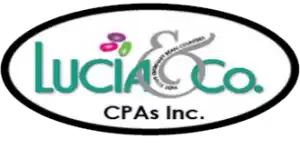Are you prepping for the 2023 tax year? E-filing is your best bet – it’s faster, more efficient and can help sidestep a potential IRS backlog. Complicating matters this time around are guideline revisions on tax credits and new stipulations mandating reporting of business transactions through Venmo, PayPal or Cash App. If tackling self-employment income/online sales has you stumped, don’t hesitate to seek expert assistance for tax season 2023!
Now that we’re settled into 2023, it’s time to start preparing for filing tax returns. Get ahead of the game now and make this upcoming season as stress-free as possible with these seven helpful tips from Lucia & Co. CPAs!
File Your Taxes Early to Avoid Delays
The IRS saw up an uptick in staff this past year to offset their recently challenges during tax season. However, returns that are flagged for review may still experience delays in receiving their refunds.
Don’t find yourself in the slow lane – get your tax return done early!
If you’re filing without a professional, make sure to take advantage of e-filing and direct deposit so that no delays stand between you and your refund. For more complex filings, it’s best to get ahead by collecting all necessary information quickly. This will grant extra time for reviewing any discrepancies or seeking out advice from an expert.
File With Accuracy the First Time
Tax errors can lead to major consequences, including a costly IRS audit. The Internal Revenue Service will compare your return with pertinent third-party data such as W-2s and 1099s. An inconsistency may trigger further review and cause headaches down the line – so it’s best practice to double check financial paperwork before you submit!
Ensure your return is correct and accurate before filing – get a free, digital copy of your tax transcript by visiting the IRS Get Your Tax Record site. Be sure to double-check all information provided with what the IRS has on file!
Plan for an Extension Ahead if Necessary
Missing the April 18 tax deadline can cost you big – to help avoid penalties and interest, make sure to get an extension filed right away. This’ll give you extra time to file, up until October 16 this year. Don’t wait for next year’s estimated payment date either; prioritize all of your IRS deadlines this season so that you have one less thing on your plate come 2024!
Check New Tax Credit and Deduction Rules
Take advantage of the benefits available to you and reduce your tax bill! The recent American Rescue Plan Act temporarily enhanced certain tax credits and allowed for generous charity deductions. Before these programs come to an end, make sure you know what’s still eligible, so you can maximize all potential savings opportunities this season.
If you have children, in 2021 you were eligible for a substantial tax credit of up to $3,600 per child. This year though, the rate has returned to only $2,000 per eligible child.
In 2021, those with qualifying child and dependent care expenses could take advantage of a generous credit worth up to $8,000. However, the expense value has decreased significantly for this tax season; maximum benefit is now set at just $2,100.
The EITC tax credit has seen some sizable reductions, so be sure to double check with the IRS for all relevant income eligibility and credit information.
The American Rescue Plan Act has opened the door to affordability for more individuals seeking health insurance. Those with household incomes up to 400% above the federal poverty line are now eligible for a premium tax credit when purchasing coverage through the marketplace.
The Clean Energy Vehicle credit saw some changes in 2022. However, if you purchased a qualifying car in 2022 you may qualify for the credit that’s worth up to $7,500.
If you had any charitable donations in 2022, you’ll have to itemize this year. Last year was a lot easier as it was on a separate line on a standard deduction.
Don’t Worry About PayPal, Yet
As part of the American Rescue Plan, third party payment companies such as Venmo and CashApp must register their business customers with Form 1099-K. This reporting requirement is a marked change from last year’s threshold of $20,000. Beginning in 2022, those who receive at least $600 via digital payments will need to submit this form for IRS scrutiny.
Taxpayers may sigh in relief knowing they won’t need to factor the 1099-K form into their 2022 filing due a legislative reprieve. This means we won’t see this implementation until after this tax season. However, freelancers still need to include any income from their endeavors on their tax return. This includes self-employment income, gig work payments, sales of goods or other transactions.
Starting in 2023, new tax reporting rules will affect how you record income from self-employment and gig work. To ensure compliance with these regulations, now is a good time to review the settings of your personal Venmo, Cash App and PayPal accounts to make sure they are not mistaken for business transactions come tax season.
Do Not Forget Gig Work as Income
If you’re part of the gig economy – driving for a delivery app, say – don’t forget to declare your income and pay those all-important taxes. Your financial future depends on it! Workers with a history of contracting may require the filing of Schedule C, which lays out your business’ profits and losses.
Self-employed individuals can deduct some of their car and home office expenses, but it gets complicated. It’s important to know what you can deduct for business expenses, and what doesn’t qualify at all. To clear up any confusion, getting in touch with a CPA is the best move.
Report Your Gains and Losses
Making a profit from your investments can be extremely rewarding. However, it’s important to remember that the IRS will take its cut! Whenever you sell an investment for more than what you paid for it, typically capital gains tax must be reported and paid accordingly. That said, don’t forget — if no profits are realized upon sale of any asset in 2022 then there is nothing to pay in terms of capital gains taxes (dividend or interest payments still count as income).
The stock market the last 12 months has seen a huge dip since its peak in 2020. If you took a loss on any investment this year, up to $3,000 may be deducted from taxes owed. The loss amount carries over from year to year, which means you could see back to back $3,000 deductions if your losses amount to $6,000.
Have Questions? Consult with Lucia CPA
If you’re feeling overwhelmed by the prospect of filing taxes this year, consider consulting with the team at Lucia and Co. CPAs. Our experienced professionals can provide valuable advice and assistance to ensure that you get through tax season 2023. Get in touch with the experts today for more information about filing your taxes with ease.


